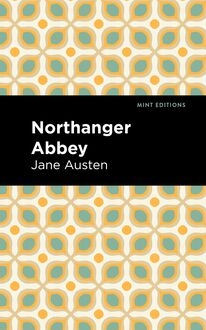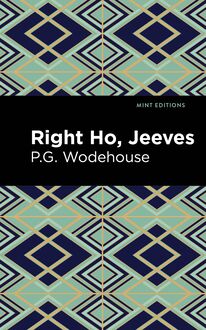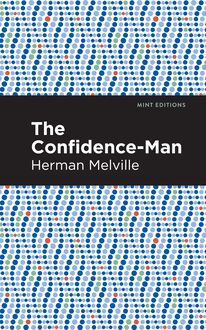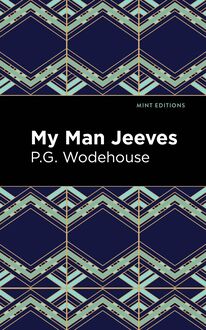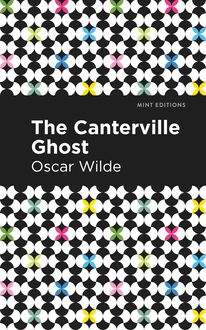-
 Univers
Univers
-
 Ebooks
Ebooks
-
 Livres audio
Livres audio
-
 Presse
Presse
-
 Podcasts
Podcasts
-
 BD
BD
-
 Documents
Documents
-
- Cours
- Révisions
- Ressources pédagogiques
- Sciences de l’éducation
- Manuels scolaires
- Langues
- Travaux de classe
- Annales de BEP
- Etudes supérieures
- Maternelle et primaire
- Fiches de lecture
- Orientation scolaire
- Méthodologie
- Corrigés de devoir
- Annales d’examens et concours
- Annales du bac
- Annales du brevet
- Rapports de stage
La lecture à portée de main
Vous pourrez modifier la taille du texte de cet ouvrage
Découvre YouScribe en t'inscrivant gratuitement
Je m'inscrisDécouvre YouScribe en t'inscrivant gratuitement
Je m'inscrisEn savoir plus
Vous pourrez modifier la taille du texte de cet ouvrage
En savoir plus

Description
Portraying the revolving clash between class ideals, Antic Hay is a stunning cultural critique on life in London circa 1923. With a sharp comedic edge, author Aldous Huxley delivers a novel of ideas aimed at characterizing the unsettling times following the end of World War I.
With over-the-top characters, and ensuing brutish conversations, Antic Hay doesn’t follow a typical narrative arc. Huxley’s work portrays a world entirely fabricated on gossip, lies, and one man’s yearning for societal approval. Dripping with prose that brandished Huxley as somewhat of an iconoclast, Antic Hay has been hailed as Huxley’s first masterpiece, paving the way for books with even more controversial subject matter like that of his most popular novel, Brave New World.
With an eye-catching cover that mirrors the complexities of Huxley’s world and a professionally typeset manuscript, this edition of Antic Hay is both modern and readable. Also included is a new note about the author.
Sujets
Informations
| Publié par | Mint Editions |
| Date de parution | 07 mai 2020 |
| Nombre de lectures | 1 |
| EAN13 | 9781513264103 |
| Langue | English |
Informations légales : prix de location à la page 0,0500€. Cette information est donnée uniquement à titre indicatif conformément à la législation en vigueur.
Extrait
Antic Hay
Aldous Huxley
Antic Hay was first published in 1923.
This edition published by Mint Editions 2020.
ISBN 9781513263557 | E-ISBN 9781513264103
Published by Mint Editions®
minteditionbooks.com
Publishing Director: Jennifer Newens
Project Manager: Gabrielle Maudiere
Design & Production: Rachel Lopez Metzger
My Men Like Satyrs Grazing on the Lawns
Shall with their Goat-Feet Dance the Antic Hay.
—Marlowe
Chapter 1
Gumbril, Theodore Gumbril Junior, B.A. Oxon., sat in his oaken stall on the north side of the School Chapel and wondered, as he listened through the uneasy silence of half a thousand schoolboys to the First Lesson, pondered, as he looked up at the vast window opposite, all blue and jaundiced and bloody with nineteenth-century glass, speculated in his rapid and rambling way about the existence and the nature of God.
Standing in front of the spread brass eagle and fortified in his convictions by the sixth chapter of Deuteronomy (for this first Sunday of term was the Fifth after Easter), the Reverend Pelvey could speak of these things with an enviable certainty. “Hear, O Israel,” he was booming out over the top of the portentous Book: “the Lord our God is one Lord.”
One Lord; Mr. Pelvey knew; he had studied theology. But if theology and theosophy, then why not theography and theometry, why not theognomy, theotrophy, theotomy, theogamy? Why not theophysics and theo-chemistry? Why not that ingenious toy, the theotrope or wheel of gods? Why not a monumental theodrome?
In the great window opposite, young David stood like a cock, crowing on the dunghill of a tumbled giant. From the middle of Goliath’s forehead there issued, like a narwhal’s budding horn, a curious excrescence. Was it the embedded pebble? Or perhaps the giant’s married life?
“… with all thine heart,” declaimed the Reverend Pelvey, “and with all thy soul, and with all thy might.”
No, but seriously, Gumbril reminded himself, the problem was very troublesome indeed. God as a sense of warmth about the heart, God as exultation, God as tears in the eyes, God as a rush of power or thought—that was all right. But God as truth, God as 2 + 2 = 4—that wasn’t so clearly all right. Was there any chance of their being the same? Were there bridges to join the two worlds? And could it be that the Reverend Pelvey, M.A., fog-horning away from behind the imperial bird, could it be that he had an answer and a clue? That was hardly believable. Particularly if one knew Mr. Pelvey personally. And Gumbril did.
“And these words which I command thee this day,” retorted Mr. Pelvey, “shall be in thine heart.”
Or in the heart, or in the head? Reply, Mr. Pelvey, reply. Gumbril jumped between the horns of the dilemma and voted for other organs.
“And thou shalt teach them diligently to thy children, and shalt talk of them when thou sittest in thine house, and when thou walkest by the way, and when thou liest down, and when thou risest up.”
Diligently to thy children.… Gumbril remembered his own childhood; they had not been very diligently taught to him. ‘Beetles, black beetles’—his father had a really passionate feeling about the clergy. Mumbojumbery was another of his favourite words. An atheist and an anti-clerical of the strict old school he was. Not that, in any case, he gave himself much time to think about these things; he was too busy being an unsuccessful architect. As for Gumbril’s mother, her diligence had not been dogmatic. She had just been diligently good, that was all. Good; good? It was a word people only used nowadays with a kind of deprecating humorousness. Good. Beyond good and evil? We are all that nowadays. Or merely below them, like earwigs? I glory in the name of earwig. Gumbril made a mental gesture and inwardly declaimed. But good in any case, there was no getting out of that, good she had been. Not nice, not merely molto simpatica —how charmingly and effectively these foreign tags assist one in the great task of calling a spade by some other name!—but good. You felt the active radiance of her goodness when you were near her.… And that feeling, was that less real and valid than two plus two?
The Reverend Pelvey had nothing to reply. He was reading with a holy gusto of “houses full of all good things, which thou filledst not, and wells digged, which thou diggedst not, vineyards and olive trees, which thou plantedst not.”
She had been good and she had died when he was still a boy; died—but he hadn’t been told that till much later—of creeping and devouring pain. Malignant disease—oh, caro nome !
“Thou shalt fear the Lord thy God,” said Mr. Pelvey.
Even when the ulcers are benign; thou shalt fear. He had travelled up from school to see her, just before she died. He hadn’t known that she was going to die, but when he entered her room, when he saw her lying so weakly in the bed, he had suddenly begun to cry, uncontrollably. All the fortitude, the laughter even, had been hers. And she had spoken to him. A few words only; but they had contained all the wisdom he needed to live by. She had told him what he was, and what he should try to be, and how to be it. And crying, still crying, he had promised that he would try.
“And the Lord commanded us to do all these statutes,” said Mr. Pelvey, “for our good always, that he might preserve us alive, as it is at this day.”
And had he kept his promise, Gumbril wondered, had he preserved himself alive?
“Here endeth the First Lesson.” Mr. Pelvey retreated from the eagle, and the organ presaged the coming Te Deum .
Gumbril hoisted himself to his feet; the folds of his B.A. gown billowed nobly about him as he rose. He sighed and shook his head with the gesture of one who tries to shake off a fly or an importunate thought. When the time came for singing, he sang. On the opposite side of the chapel two boys were grinning and whispering to one another behind their lifted Prayer Books. Gumbril frowned at them ferociously. The two boys caught his eye and their faces at once took on an expression of sickly piety; they began to sing with unction. They were two ugly, stupid-looking louts, who ought to have been apprenticed years ago to some useful trade. Instead of which they were wasting their own and their teacher’s and their more intelligent comrades’ time in trying, quite vainly, to acquire an elegant literary education. The minds of dogs, Gumbril reflected, do not benefit by being treated as though they were the minds of men.
“O Lord, have mercy upon us: have mercy upon us.”
Gumbril shrugged his shoulders and looked round the chapel at the faces of the boys. Lord, indeed, have mercy upon us! He was disturbed to find the sentiment echoed on a somewhat different note in the Second Lesson, which was drawn from the twenty-third chapter of St. Luke. “Father, forgive them,” said Mr. Pelvey in his unvaryingly juicy voice; “for they know not what they do.” Ah, but suppose one did know what one was doing? suppose one knew only too well? And of course one always did know. One was not a fool.
But this was all nonsense, all nonsense. One must think of something better than this. What a comfort it would be, for example, if one could bring air cushions into chapel! These polished oaken stalls were devilishly hard; they were meant for stout and lusty pedagogues, not for bony starvelings like himself. An air cushion, a delicious pneu.
“Here endeth,” boomed Mr. Pelvey, closing his book on the back of the German eagle.
As if by magic, Dr. Jolly was ready at the organ with the Benedictus . It was positively a relief to stand again; this oak was adamantine. But air cushions, alas, would be too bad an example for the boys. Hardy young Spartans! it was an essential part of their education that they should listen to the word of revelation without pneumatic easement. No, air cushions wouldn’t do. The real remedy, it suddenly flashed across his mind, would be trousers with pneumatic seats. For all occasions; not merely for churchgoing.
The organ blew a thin Puritan-preacher’s note through one of its hundred nostrils. “I believe.…” With a noise like the breaking of a wave, five hundred turned towards the East. The view of David and Goliath was exchanged for a Crucifixion in the grand manner of eighteen hundred and sixty. “Father, forgive them; for they know not what they do.” No, no, Gumbril preferred to look at the grooved stonework rushing smoothly up on either side of the great east window towards the vaulted roof; preferred to reflect, like the dutiful son of an architect he was, that Perpendicular at its best—and its best is its largest—is the finest sort of English Gothic. At its worst and smallest, as in most of the colleges of Oxford, it is mean, petty, and, but for a certain picturesqueness, almost wholly disgusting. He felt like a lecturer: next slide, please. “And the life everlasting. Amen.” Like an oboe, Mr. Pelvey intoned: “The Lord be with you.”
For prayer, Gumbril reflected, there would be Dunlop knees. Still, in the days when he had made a habit of praying, they hadn’t been necessary. “Our Father.…” The words were the same as they were in the old days; but Mr. Pelvey’s method of reciting them made them sound rather different. Her dresses, when he had leaned his forehead against her knee to say those words—
-
 Univers
Univers
-
 Ebooks
Ebooks
-
 Livres audio
Livres audio
-
 Presse
Presse
-
 Podcasts
Podcasts
-
 BD
BD
-
 Documents
Documents
-
Jeunesse
-
Littérature
-
Ressources professionnelles
-
Santé et bien-être
-
Savoirs
-
Education
-
Loisirs et hobbies
-
Art, musique et cinéma
-
Actualité et débat de société
-
Jeunesse
-
Littérature
-
Ressources professionnelles
-
Santé et bien-être
-
Savoirs
-
Education
-
Loisirs et hobbies
-
Art, musique et cinéma
-
Actualité et débat de société
-
Actualités
-
Lifestyle
-
Presse jeunesse
-
Presse professionnelle
-
Pratique
-
Presse sportive
-
Presse internationale
-
Culture & Médias
-
Action et Aventures
-
Science-fiction et Fantasy
-
Société
-
Jeunesse
-
Littérature
-
Ressources professionnelles
-
Santé et bien-être
-
Savoirs
-
Education
-
Loisirs et hobbies
-
Art, musique et cinéma
-
Actualité et débat de société
- Cours
- Révisions
- Ressources pédagogiques
- Sciences de l’éducation
- Manuels scolaires
- Langues
- Travaux de classe
- Annales de BEP
- Etudes supérieures
- Maternelle et primaire
- Fiches de lecture
- Orientation scolaire
- Méthodologie
- Corrigés de devoir
- Annales d’examens et concours
- Annales du bac
- Annales du brevet
- Rapports de stage

